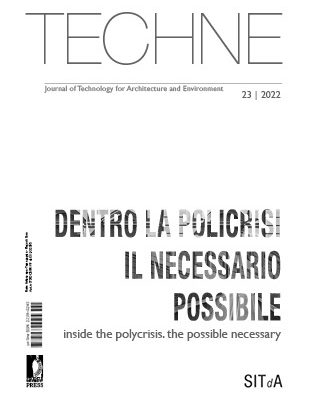Issue Description
Every crisis reveals, announces and imposes changes, with cyclical trends that can be analyzed from different perspectives, to build scenarios and foreshadow the future, even with the risks and uncertainties of each forecast. During the most acute phases of the pandemic, the radical nature of the crisis has been repeatedly indicated as a lever for an equally radical revision of development models. In fact, the Italian reality does not only require a set of actions, projects and investments such as those envisaged by the PNRR, but a real change in the design paradigms – socio-economic, production, management, innovation –, with the implementation of new skills and multidisciplinary approaches. integrated. With the definition of strategies, processes, methods, tools and techniques that support the reconversion of territories, cities and the construction system according to the logic of a new and pervasive circular bio-economy, based on the concepts and practices of recovery, reuse, regeneration, recycling, disassembly, care and maintenance, to improve the quality of the natural and built environment, reduce the consumption and waste of resources as well as extend the life cycle of materials, components, building systems and settlements.A complex panorama, widely documented in its innovation scenarios by the articulated panel of essays and researches published in this issue of Techne, of considerable interest for the possible theoretical and experimental developments of environmental technological design.
The AOH research team has contributed with:
Cascone, P., Schiano-Phan, R., Lau, B., Georgiadou, M. C., & Laddaga, M. (2022). Performative housing for extreme climatic conditions: the African Off-grid Housing (AOH) research project case study. TECHNE – Journal of Technology for Architecture and Environment, (23), 187-199. https://doi.org/10.36253/techne-12175
